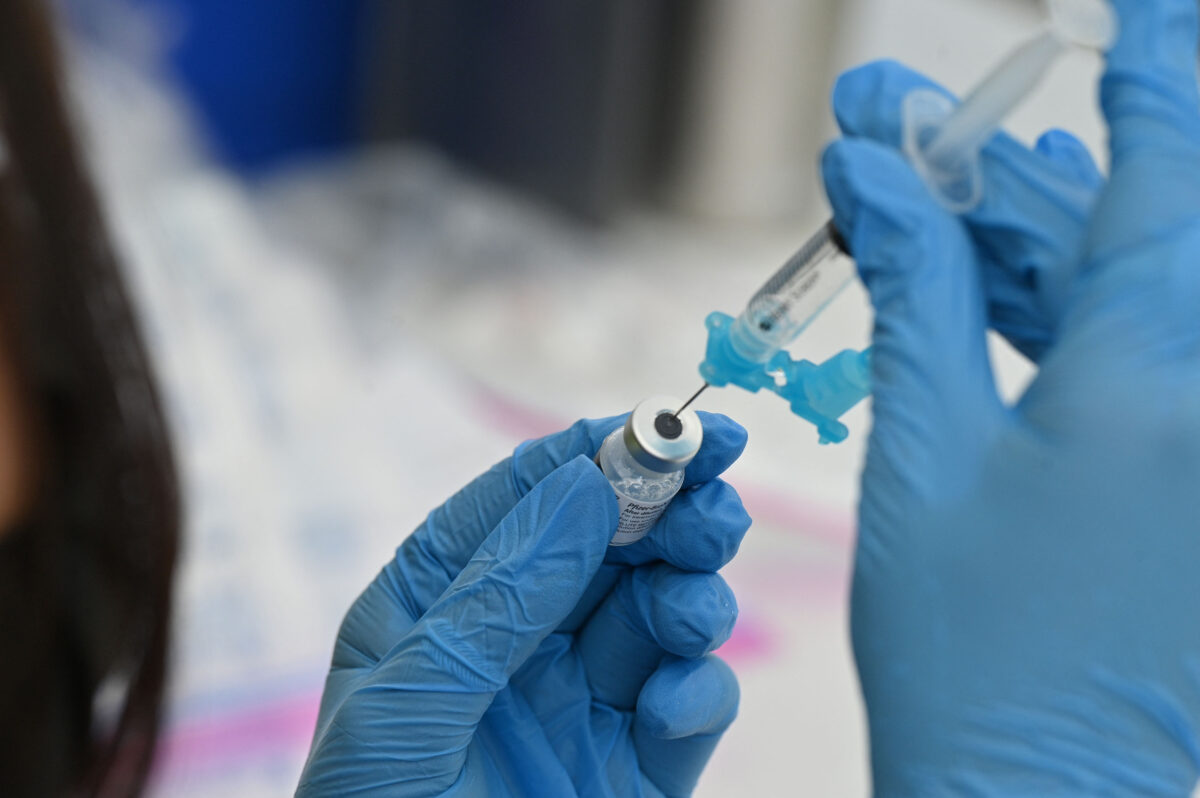Young Pfizer COVID-19 Vaccine Recipients More Likely to Get Infected After 5 Months

The Pfizer COVID-19 vaccine turned negatively effective after five months, according to a new study.
Researchers with the U.S. Centers for Disease Control and Prevention (CDC) analyzed test results from sites across the United States and determined that the vaccine was 60 percent effective two to four weeks after 12- to 15-year-olds got the second of the two-dose primary regimen.
But the effectiveness, measured against symptomatic illness, quickly plummeted, hitting 20 percent around month two and zero around month five.
After that, recipients in the age group were more likely to be infected by the disease caused by the CCP (Chinese Communist Party) virus, also known as SARS-CoV-2, the virus causes COVID-19.
Vaccine effectiveness “was no longer significantly different from 0 during month 3 after the second dose,” the researchers wrote in the study, which was published by the Journal of the American Medical Association.
Pfizer, its partner BioNTech, and the CDC didn’t respond to requests for comment.
The analyzed tests were performed between Dec. 26, 2021, and Feb. 21, 2022. Some 47,700 tests among 12- to 15-year-olds were included, with about half being unvaccinated. The testing data was on the Increasing Community Access to Testing, a program funded by the U.S. Department of Health and Human Services that contracts with pharmacy chains to perform drive-through testing. The testing data was supplemented by information in questionnaires filled out by adults with the adolescents.
Limitations of the study included vaccination being self-reported.
The study was funded by the U.S. government.
The study also found that vaccine effectiveness against symptomatic infection plunged quickly for those 5 to 11 years old, starting at 60 percent but hitting 23 percent just one month later.
One way to combat the negative effectiveness, researchers said, was to get a booster dose.
Of the 906 12- to 15-year-olds who got a third, or booster, dose, the effectiveness was measured at 71 percent two to six weeks after receipt.
Other studies, though, show that the protection from a booster, like that from the primary regimen, quickly wanes.
“Given the well-established pattern of waning mRNA VE after 2 doses and early evidence of waning of booster dose protection in adults, monitoring the duration of protection from booster doses in adolescents will be important,” researchers said.
Both the Pfizer and Moderna vaccines are built on messenger RNA (mRNA) technology. VE refers to vaccine effectiveness.
In another study published by the same journal on May 13, New York researchers reported the gap of infection and hospitalization risk between unvaccinated and vaccinated youth narrowing over time, with vaccinated 5- to 11-year-olds being infected at a rate of 62 per 100,000 and unvaccinated being infected at a rate of 70 per 100,000.
That was an incidence rate ratio of 1.1; the rate ratio for 12- to 17-year-olds was 2.
The protection also waned considerably against hospitalization over time, researchers found.
They said that the findings support “efforts to increase vaccination coverage in children and adolescents.”


